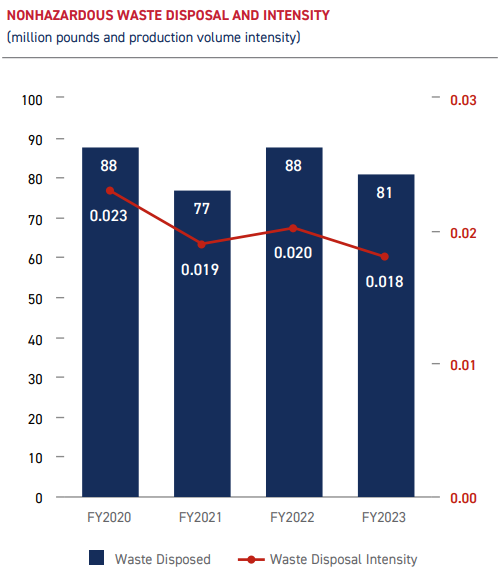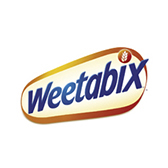Post understands there is growing awareness about the environmental pressures impacting our planet and the need for more urgent and ambitious action. We are dedicated to doing our part in reducing our impact on the environment and striving for a more sustainable future as outlined in our Global Environment, Health, Safety and Sustainability Policy (Global EHS&S Policy).
This page lists additional sustainability topics and our approach to understanding and reducing our impacts and any associated risks and opportunities to our business.
For additional information on our sustainability performance and progress, please visit our Environmental Data and ESG Reports and Disclosures pages.
- In this Section
- Environmental Data
- GHG Emissions and Climate Change
- Water Stewardship
- Sustainability by Topic
- Collective Action
Biodiversity
Post believes in the need to operate in harmony with nature and ecosystems. Maintaining biodiversity, especially for sensitive or threatened habitats, is fundamentally important to protecting flora and fauna, preserving local culture, combating climate change and supporting a stable economy. Post currently has owned and operated production sites and warehouses and distribution centers in North America and the United Kingdom. Post maintains a biodiversity assessment which evaluates the proximity of our sites to protected areas and areas of high biodiversity using the following recognized data sources:
- Alliance for Zero Extinction (AZE) Global AZE Map
- Conservation International Biodiversity Hotspots and Critical Ecosystem Partnership Fund (CEPF)
- Key Biodiversity Areas (KBA) Partnership
- WWF Biodiversity Risk Filter
Post updated our biodiversity assessment in early 2023 to utilize the new WWF Biodiversity Risk Filter tool. Based upon our assessment, Post has identified the following breakdown of sites by proximity to protected areas and areas of high biodiversity:
| Proximity | Production Sites | Warehouse & Distribution Sites |
|---|---|---|
| Not Near | 85% | 84% |
| Within 10 miles | 15% | 16% |
| 9% within large North American Coastal Plain in southeast and eastern US; 3% near Great Rivers Confluence or the Niagara River Corridor; 3% for the WWF protected area indicator (6.1). | 10% within the large North American Coastal Plain in southeast and eastern US; 3% within the large California Floristic Province; 3% located near the Boundary Bay – Roberts Bank – Sturgeon Bank (Fraser River Estuary) or the Midewin National Tallgrass Prairie | |
| Biodiversity Hotspot Proximity |
The results of our assessment, combined with our environmental data, is used to inform decisions on further assessment to confirm no direct or indirect impacts, actions to monitor and mitigate any future impacts, and investments including consideration for prioritizing local community engagement initiatives.
Post also completed a baseline screening of approximately 2,300 global ingredient and packaging supplier locations to evaluate proximity to areas of high biodiversity using the new WWF Biodiversity Risk Filter Tool. Based upon the assessment, Post has identified the following breakdown of supplier locations by proximity:
| Proximity | Current Supplier Locations |
|---|---|
| Very High | 0% |
| High | 1% |
| Medium | 9% |
| Low | 15% |
| Very Low | 75% |
Waste Minimization
Waste management, recycling and reuse is of the utmost importance to our business, the environment and society. We continually monitor and implement best practices for waste recycling and reuse throughout our operations.
Post is committed to assessing our waste to landfill.
Post decreased nonhazardous waste disposal volumes by 8% in fiscal year 2023 and achieved an overall diversion from landfill rate of 88%. Our Weetabix business has had zero waste since 2016, and our two largest businesses, Michael Foods and Post Consumer Brands, achieved 93% and 95% landfill diversion, respectively. Compared to our fiscal year 2020 baseline, Post has reduced total nonhazardous waste disposal intensity by 22%.

Since 2016, Weetabix’s waste streams no longer include Landfill, with waste either being recycled, used as animal feed or sent to “Waste to Energy” incineration.
Sustainable Packaging
Our approach to sustainable packaging is multi-pronged due in large part to our holding company business model and diversity of products requiring agility for our companies to drive their own packaging and brand strategies.
Post is committed to active participation in the Sustainable Packaging Coalition (SPC) and
to implement How2Recycle (H2R) labeling across our products.
Weetabix is committed to making 100% of packaging recyclable by 2025 and reducing
the carbon footprint of packaging by 10%.
Post Consumer Brands is committed to designing for 100% recyclable cereal and product
packaging by 2025.
Our Post Consumer Brands business is committed to design for 100% recyclable cereal and product packaging across its product base by 2025. From our Malt-O-Meal brand being the first sold cereal in bags back in the 1960s to today with about 90% of Post branded boxed cereal packaging containing recycled or renewable materials, we are always looking to advance our packaging.

The Post Consumer Brands team has reduced plastic film usage in cereal bags by more than one million pounds while maintaining overall durability and quality and has reduced paper packaging material usage by about 930,000 pounds. In fiscal year 2023, we joined MBOLD, a circular economy collective action initiative with the aim of recovering 90 million pounds of flexible packaging and film per year.
Our Weetabix business achieved 100% recyclable packaging across all brands in late calendar year 2022. One of the most significant achievements has been changing the paper wrap that protects our Weetabix biscuits within their box. The wrap is lined with a thin plastic coating to help protect the product and comply with food contact safety standards. Notable achievements:
- Weetabix has reduced the coating thickness down from 0.87 grams to 0.35 grams, representing a 59% reduction in material used. This will save more than 200 metric tons of plastic each year and ensures the wrap is now fully acceptable in U.K. curbside recycling processes.
- Using our learning from the successful changes to Weetabix wrap, we have also introduced new materials for the Ready Brek portion sachets to make them 100% recyclable too.
- Weetabix has reduced carbon emissions of Weetabix packaging by 9.2% as a sales weighted average across all of the material used.
No Deforestation
Forests are key to preserving biodiversity of plants and animals and fighting climate change. They also provide livelihoods to millions of people around the world. We are determined not only to manage deforestation risks in our supply chains, but to protect and restore forests and other critical natural ecosystems. Post maintains a No Deforestation Policy and our aspiration is to source 100% of our global commodities with no deforestation impacts.
Based upon our current evaluation of potential deforestation impacts, Post has the following status:
Palm Oil – Since 2015, Post has participated in the Roundtable on Sustainable Palm Oil (RSPO) and completed RSPO’s annual Communication On Progress. We are a very small user of palm oil and only directly purchase RSPO mass-balanced certified palm oil ingredients.
Soy – All soy oil is directly sourced by Post for use in manufacturing products and a limited amount of soy protein isolate used by our cereal business are from soybeans grown and processed in North America. All soybean meal for feeding poultry is sourced from within the United States. Eggs are directly sourced from North American suppliers and may use soybean meal for chicken feed. Post will also assess and monitor other trace quantities of soy in our value chain.
Beef – All beef commodities are directly sourced by Post and are North American produced.
Pulp and Paper – A majority of our suppliers of corrugated and folding cartons have publicly available sustainable forestry and wood fiber procurement related policies, ambitious commitments to only source recovered fiber or virgin materials from sustainably managed forests, and mature programs to maintain chain of custody and sustainable forestry certifications, such as Sustainable Forestry Initiative® (SFI®), Forest Stewardship Council® (FSC®), and Programme for the Endorsement of Forest Certification™ (PEFC™). These suppliers also voluntarily report on their deforestation governance and performance through the annual CDP Forests questionnaire. Post also has a small amount of spend with suppliers providing specialized pulp and paper products (e.g., pulp trays), which will be evaluated and monitored as part of this policy commitment.
Post also completes and annual screening of approximately 2,300 global ingredient and packaging supplier locations and our global production sites to evaluate potential for deforestation impacts using the new WWF Biodiversity Risk Filter Tool. Based upon the assessment, Post has identified the following breakdown by deforestation proximity:
| Deforestation | Current Supplier Locations | Production Sites |
|---|---|---|
| Very High | 0% | 0% |
| High | 0% | 0% |
| Medium | 7% | 2% |
| Low | 31% | 18% |
| Very Low | 62% | 80% |

